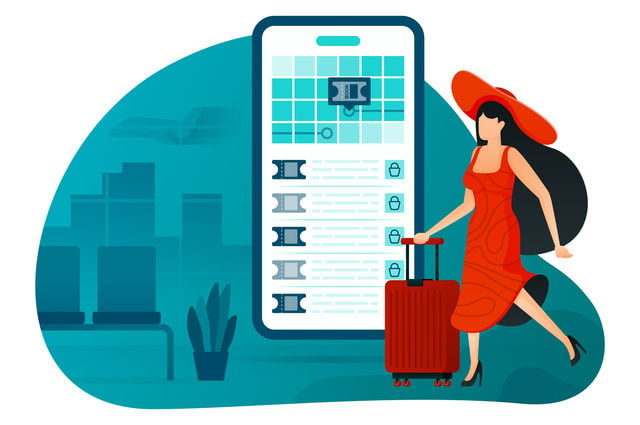How is the current climate of uncertainty and compressed booking windows impacting successful hotel operations?
16 experts shared their view
Even the most seasoned revenue managers are reporting that forecasting today, despite big advances in technology, is more difficult than it is ever been. Volatility, late-arriving demand, and distribution algorithms that re-rank you in seconds make weekly revenue meetings and static plans feel obsolete.
Winning hotels are shifting to real-time strategy: a continuous loop of velocity analytics, anomaly detection, and pre-agreed triggers that adjust price, fences, availability, and visibility without waiting for a meeting. Short-horizon forecasts sit inside guardrails to protect rate integrity and profit.
When pace is healthy, they hold rate. When it softens, they deploy targeted levers while operations align to monetize late demand through paid upgrades, parking, F&B, and late checkout - capturing value without discounting the core. History has taught us to not make it a race to the bottom. The real question is: if demand is so inconsistent, how can we sense it sooner and act smarter?
"Velocity analytics" and "Anomaly detection" sound like cutting-edge tech, but these are just fancy names for basic common sense: watching your booking pace and noticing when something's off.
The bigger issue is our industry's obsession with historical forecasting. Having worked revenue management before moving to marketing, I've seen how dangerous this backward-looking approach can be. We've been trained to find patterns and build forecasts because it gives us the illusion of control. But nowadays it's not only useless but definitely dangerous.
2025 is proving radically different from 2024, generally worse. Yet most revenue managers are still building strategies around last year's patterns, expecting some return to "normal."
There is no normal anymore, even more so since the pandemic.
Abandoning the illusion of historical data to predicts future performance in favor of real-time decision making is accepting that the old playbook is obsolete. When booking windows compress and demand patterns shift constantly, your ability to react quickly matters more than your ability to predict accurately.
This is one of the greatest opportunities the hotel industry has ever faced. Forecasting should no longer be treated as a static spreadsheet, it's more like a live stock market dashboard, where dozens of variables are in motion and projections shift by the hour. Understanding changing buyer behaviors, mix shifts, and sudden event-driven spikes is critical, but layering in economic volatility and geopolitical uncertainty adds new, high-impact variables to the equation.
The key is to identify and focus on the data points that truly drive your forecast. This means looking beyond internal metrics and embracing richer external data, competitive rate shops, destination market forecasts, airline arrival/departure trends, and other forward-looking indicators to sharpen your understanding of both demand volume and demand type. Then go deeper: uncover what actually motivates your customers on each booking channel, and tailor offers that speak directly to them. By aligning data-driven insights with targeted offers, you won't just improve your forecast, you'll boost conversion and revenue at the same time.
As a seasoned Revenue and Profit Optimization professional I would like to reitarate (which I have already expressed in my book Hospitality 2.0 and other publications): travel demand has always been uncertain, and history never repeats itself. Recent events just highlighted this fact for all of us (again), just like COVID did, and many events before that.
The primary goal of a revenue and profit manager, as well as any RMS, is performance through proper adjustments of your strategy, not through accurate forecasts. PERFORMANCE IS MORE IMPORTANT THAN ACCURATE FORECASTING.
You can have an occupancy forecast that is 100% accurate (of course, because you can hit whatever occupancy target you'd like, as we discussed earlier) and make less money at the end of the day, than having a less accurate original forecast with more money as a result, if your strategy is adaptive enough that it always readjusts with demand fluctuations.Demand forecasts are always wrong. No one has a crystal ball or perfect vision.
And that is why it's important to be able to readjust quickly and adaptively, and that is exactly what makes a difference in your revenue and profit strategy. Not accurate forecasts.
If I had to summarise it, I would suggest that a good start would be to rely on data intelligence, move at the speed of data, let supporting tools do the job they were deployed for and focus on bigger picture initiatives that move the business forwards.
I appreciate that many do not have automated revenue optimization tools. But many also do, yet prefer to get in the middle of the process. In my view this is a flawed approach, centred around misplaced views on human capablity or lack thereof.
Today (and 25 years ago) any decent tool is looking at data on a multiple times per day status, if not down to the hour. As a result even small pattern changes can be identified and adjustments can be made automatically. In the short term booking horizon and across the long term as well.
The other point I would highlight is that market demand is not necessarily your specific businesses demand. All hotels and businesses are not equal.
Generally, it's a frustration that in industry we continue to hold ourselves back from taking advantage of tools designed to work faster and more accurately than we can to build better business.
The ongoing climate of uncertainty, once the post-pandemic tailwind is over- means that hotels are facing shorter booking windows, often just a few days out, which severely limits traditional planning and forecasting methods.
Operationally, it means that staffing models, purchasing decisions, and even ancillary services need to remain flexible and responsive. Misalignment leads to lost revenue or dissatisfied guests. Or both.
What does that mean for Revenue Management? We now require real-time data analysis and the ability to pivot quickly based on actual demand patterns. Which is what top RMS have been doing for a long time.
The difference now is that, regardless of the size of your property, embracing that tech is no longer an option but a requirement. Switch now or next season might be too late.
We can't no longer wait for stability to return. We need to adapt to a market defined by last-minute decisions. And only if you can respond faster and smarter will you remain profitable.
Here are the 3 aspects of how to operate:
- Make the mental shift that the environment is super dynamic. This is the most important one. No system will save any revenue manager if mentaly they expect that things are linear.
- Have a holistic integrated unsiloed commercial strategy. Demand generation should work hand in hand with revenue management
- Use a hybrid forecasting system. Blend AI with human insight. AI will eventually predict almost everything, but only when it has all the data. That's not the case yet. Think about M&E and groups: an experienced M&E manager will know better than any current system whether a group will convert. The subtle cues from an organiser aren't yet captured as data points… they will be, but not yet today.
Even in this "unpredictable" world, patterns persist though. Overlay your last three years of daily occupancy and you'll often see the same shape. Destination demand fundamentals don't change; booking patterns do. We do have that data. So, is the market as chaotic as it feels?
Uncertainty? It's certain that 2025 is and will be a year of uncertainty. STR forecasts that demand in 2025 will be down by 0.1%, compared to positive 0.5% last year.
Here are some quite obvious recommendations:
- Even with slightly lower demand, people will continue to visit your destination. Unlike your panicked competitors, stay calm and come up with creative, enticing packages, special offers and promotions. You know your product, guests and local neighborhood better than anybody else. Create unique, sought-after offers that resonate with your guests, perhaps in collaboration with local tour and activity providers.
- Compressed booking windows create uncertainty and quite often force hoteliers to lower rates to put business on the books. Instead, based on your concrete situation, introduce Advance Purchase Rates, perhaps 21-day with 20% discount, 14-day with 15%, 7-day with 10%. Perhaps a non-refundable first night or the whole stay.
- If you property does not have a Revenue Management System (RMS), now is the time to get one. As per IDEAS RMS, a full-service hotel has to make, on average, 5 million pricing decisions a year. In this environment, it impossible to make the right pricing decisions without a RMS.
Hotels today face a volatile landscape—compressed booking windows, unpredictable demand, and shifting traveler behaviors make planning difficult. Amid all this, agility and foresight are critical. Advanced revenue management systems (RMS) help hotel teams detect shifts quickly and respond with precision. By combining real-time data analysis with intelligent automation, RMS enable smarter proactive decisions across pricing, distribution, and forecasting.
Key to this is the use of stochastic forecasting, which models a range of possible demand outcomes rather than relying on a single prediction. This allows hotels to prepare for variability, not just averages. For example, when booking windows shrink, RMS detect demand shifts and adjust pricing and inventory controls automatically. If a sudden surge occurs, the system recalibrates forecasts and recommends tactical responses faster than manual processes.
RMS also support granular segmentation. If short-stay leisure bookings spike, the system identifies the trend early, forecasts its trajectory, and enables targeted pricing strategies—while protecting inventory for higher-value guests. Operational planning benefits, too, as forward-looking insights are used to align staffing, housekeeping, and F&B inventory with demand.
Ultimately, today's RMS tools empower hotels to anticipate change, not just react to it—turning uncertainty into opportunity.
That's an interesting one, Scott.
I would argue that forecasting has not just grown more difficult; it has lost its very meaning.
Demand no longer behaves like a curve but like a pulse, manipulated by opaque algorithms, LLM-driven recommendations, and late-stage decisions that defy pattern. In this context, the winning hotel is not the one that predicts most accurately, but the one that metabolizes volatility, running on perpetual recalibration within clear guardrails for profit integrity.
Rate is only a fragment of the equation. With booking windows shrinking, value migrates to the property itself, where upgrades, F&B, and loyalty conversion generate the real yield. As AI intermediaries multiply (agentic bookings, conversational assistants, algorithmic overviews, OTAI - online travel artificial intelligences), unpredictability will only deepen. And that is why, as I have written many times, we must be less room-obsessed.
The future is not forecasting, it is orchestration under conditions of radical uncertainty.
A very thoughtful and correct recognition that today’s volatile market and compressed booking windows make hotel revenue management more challenging than ever, even with technological advances. This increased unpredictability of demand, coupled with algorithms that can instantly alter a hotel’s competitive positioning, does indeed render traditional weekly meetings and rigid revenue plans less effective.
However, a rapid shift to real-time, analytics-driven approach—leveraging continuous velocity analytics, anomaly detection, and automated pricing triggers—presents both opportunities and risks. Quick adjustments and protective rate guardrails can certainly help maintain profitability and adapt to rapid market shifts without defaulting to indiscriminate discounting. Monetizing late demand through targeted upsells and ancillary offers, as suggested, enables hotels to boost revenue while ostensibly holding the line on core pricing.
Nevertheless, it is essential not to lose sight of the need for human oversight, operational discipline, and strategic brand positioning. While automation enhances agility, it is the collaboration between revenue management, sales, and operations teams that provides critical context and ensures guest experience isn’t compromised.
Ultimately, the most successful and resilient hotels will blend real-time tactics with thoughtful stewardship—using technology to sense market changes sooner, but always acting smarter through collaboration and discipline.
Let's face it: revenue management in the hospitality world has become a fast-paced, tech-savvy game. The days of relying on slow, static approaches are gone, and any hotel that isn't tapping into deep market insights (both historical trends and forward-looking booking data) is at risk of falling behind the competition. Take hotel bookings, for example. Amadeus travel intelligence data shows most reservations are made within just two weeks of travel, though there are some regional differences.
Hotels need to be prepared for short booking windows, and tweaking room rates alone isn't enough. It's all about creating strategies that also include upsells and last-minute offers. Targeting certain types of travelers, like those booking on a whim, can be the key to unlocking new audiences and revenue streams.
Tools like velocity analytics, anomaly detection, and search intent data can also come in handy to help hoteliers spot changes in booking trends early and act fast. Amadeus, for example, pulls together mountains of data from millions of searches and bookings to traveler behaviors to give insights. With these, hotels can monitor demand, tweak room rates, and make smart decisions quickly, turning raw data into powerful, immediate action for marketing, sales, and revenue growth.
The root cause of demand shifts isn"t just booking behavior — it's the fundamentals of travel demand. Currency exchange rates, political uncertainty, global or local economic conditions, flight connectivity, destination attractiveness, and events all directly shape the amount of overnight accommodation required. If hotels don't understand these drivers at the destination level, forecasting becomes guesswork. And too often, hotels take the wrong actions.
Instead of analyzing demand properly, many hotels react by lowering rates. This creates confusion for guests. Constant price fluctuations train travelers to wait, because they assume tomorrow's price might be lower. It's the same psychology that drives last-minute flight bookings. Price wars only make it worse: by undercutting each other, hotels signal that "value" means "lowest price," eroding trust and destroying price integrity. Add generic offerings into the mix, and the market becomes commoditized. When all hotels look the same, the only decision factor left is rate — making late booking not just logical but inevitable.
The way forward isn't more random discounts, but clarity. Focus on your ideal guest. Learn why they travel to your destination, what they truly need, and how they book. Knowledge about your ideal guests builds stronger forecasting, healthier pick-up, and long-term profitability.
In the face of leisure travel uncertainty and inconsistent booking trends, hotels must rely on flexible, data-driven strategies that allow for rapid pivots, continuous scenario planning, and proactive risk management. It is crucial to maintain consistent monitoring of KPIs, booking trends and potential forecast models that allow your commercial team to have stronger understanding of financial implications and enable more confident decision making.
Tactics should consistently be in place to leverage short-term demand, capturing last-minute travelers through exclusive or geo-targeted offers, while securing consistent base with long-lead times such as guaranteed group business. During periods of booking uncertainty, your repeat guest can provide a dependable base which can be leveraged through proactive communication including personalized offers that drive return visits.
Your market positioning should remain competitive and consistent, which requires the ability to stay agile in pricing while protecting long-term reputation. This can include leveraging your property's unique offerings and experiences rather than relying on heavy discounting. Ensure that you are tailoring messaging and offers to distinct demographics, each that have unique preferences and booking trends. Finally, activating your sales team to gather real-time feedback from clients and partners can provide a better understanding of evolving customer needs and trends.
SiteMinder's data reveals a story of contrasts in 2025. As some markets surge with record performance, others face unexpected headwinds. A divergence that points to a fundamental truth: hoteliers can no longer rely on universal strategies when once-dependable market rhythms grow unpredictable.
This newfound volatility demands a fresh perspective, with traditional dashboards no longer telling the full story. When a concert announcement fills a city's hotels in hours, or storms trigger mass cancellations, yesterday's metrics only capture part of what's happening.
The properties that will thrive in this environment are those empowered to see and act on the complete picture: tracking wider signals with AI, connecting to new channels, and distributing packages and promotions to match demand without complexity, while ensuring that pricing decisions flow seamlessly across every system.
In the coming years, this combination of intelligence and execution will fundamentally reshape how hotels operate. Properties won't scramble to keep up with market shifts, they'll predict them, with new revenue streams emerging in hours rather than days.
With uncertainty as the norm, being equipped to fully capitalise on today's fluctuating travel landscape has become the foundation of revenue success.
In a volatile market, focus on what you can control.
Forecasting is tough. Booking windows are shorter, demand is harder to read, and planning ahead feels like chasing shadows. But while future bookings are unpredictable, the guests already on the books are not.
That’s where upselling makes a real impact.
The most successful hotels are focused on making more from every guest without discounting. That means offering the right add-ons like early check-in, dining, spa, or room location based on when guests are most likely to say yes.
Automation helps with timing, but people still matter. A well-trained front desk team can spot the right moment and make the right offer, adding value for the guest and revenue for the hotel.
When fewer things feel predictable, this is one lever that still works. No guesswork. Just better timing, better offers, and a better bottom line.
Uncertainty and compressed booking windows have made forecasting tougher than ever. Even with all the data and tech we have, demand is arriving later, volatility is higher, and distribution algorithms can shuffle your ranking in seconds. Static weekly plans just don’t cut it anymore.
The hotels that are winning have moved to real-time strategy. They use velocity analytics, anomaly detection, and pre-agreed triggers so adjustments happen right away. When pace is strong, they hold rate. When it softens, they deploy previously developed levers and align operations to monetize late demand, hopefully through things like upgrades, parking, F&B, or late checkout, versus discounting the core.
A luxury Caribbean hotel that I work with to optimize revenue is a perfect example. It’s been an amazing year, but every now and then, a week would come in at half the usual pace. At first, everyone panicked. Automated forecasts dropped sharply, stakeholders got nervous, and it looked like a real problem. But when we stepped back, we saw the pattern: almost every one of those bad weeks was followed by a bounceback week that recovered a good chunk if not all, of the shortfall.
That’s velocity, and it’s been a game changer. Now, instead of overreacting, we make small tactical moves for the next 7 to 10 days and keep the bigger strategy steady. Interestingly, some of those dips line up with big financial headlines, even though the hotel’s $1,100 ADR suggests our guests aren’t booking based on daily stock swings.
The real lesson? Volatility isn’t going away. The key is sensing it sooner, staying calm, and acting smarter without letting fear push you into a race to the bottom.
















